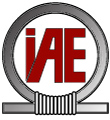Statement approved by the Council of the International Association of Egyptologists, June 2017
NINO has been one of the most prestigious and important departments for the study of ancient Egypt and the Near East since its foundation in 1939. Countless scholars have carried out their research and teaching there, and many more students, some of whom are now among the leading international experts, have enjoyed the privilege of using one of the foremost Egyptological research libraries in the world, and the largest in the Low Countries. Thousands of scientific monographs and articles, many published in the Institute’s own series, have arisen from the research undertaken there. Altogether NINO has made an enormous and vital contribution to our understanding of the ancient past, and the development of some of the most significant complex societies in the history of mankind.
NINO has flourished in large part because it has been able to draw on the skills of a dedicated team of staff and to foster truly multidisciplinary projects specific to the study of the ancient world but also of wider significance. Following the inception of the institute, chairs in Egyptology and Assyriology were created, and based within ist premises. The NINO staff, besides doing important research themselves, have played an important role in the development of Near Eastern Studies (including Egyptology) in the Netherlands. The Institute attracts visiting researchers and others, all of whom gain enormous benefit from the present arrangement in which the Institute’s internationally important collections – including the magnificent open-shelf library and the De Liagre Böhl Collection of ancient material – are kept together. The facilities provided by NINO have generated a research environment which attracts numerous students in Egyptology and ancient Near Eastern Studies to Leiden – the only remaining place in The Netherlands that facilitates research in these fields.
NINO has long provided a meeting point for scholars worldwide; it provides the kind of nexus which is vital in bringing experts together, facilitating the sharing of ideas and fostering the collaborations which are vital to the health of our subject. Very few scholars in the field of Egyptology can have been unaffected by the contribution made by NINO to international scholarship, and many would be adversely affected by ist closure. Proximity is crucial in academic research: inspiration, ideas and the kind of advances in understanding that have characterized the research arising from NINO can only happen when scholars can work closely with, and with easy access to, Primary material, scientific literature, and one another.
The dispersal of NINO’s assets and the loss of its expert staff would drastically reduce the possibility of the vital connections between scholars and their material being made, and consequently the likelihood of first-rate research being undertaken. If the University is to maintain its status as an outstanding contributor to international scholarship in the study of ancient Egypt and the Near East, it is vital that NINO is allowed to continue to thrive as an independent institute. Its loss would be a tragedy for Egyptology and Ancient Near Eastern studies. Furthermore, its closure in times of acute danger to the cultural heritage of certain parts of the Near East implies a disregard and ignorance towards the needs of national and international students and scholars in their efforts to research and protect this heritage.
The International Association of Egyptologists opposes, and urges a reconsideration of, the proposed closure of NINO in the strongest possible terms.
Download:IAE Statement_NINO 2017 FINAL.pdf
